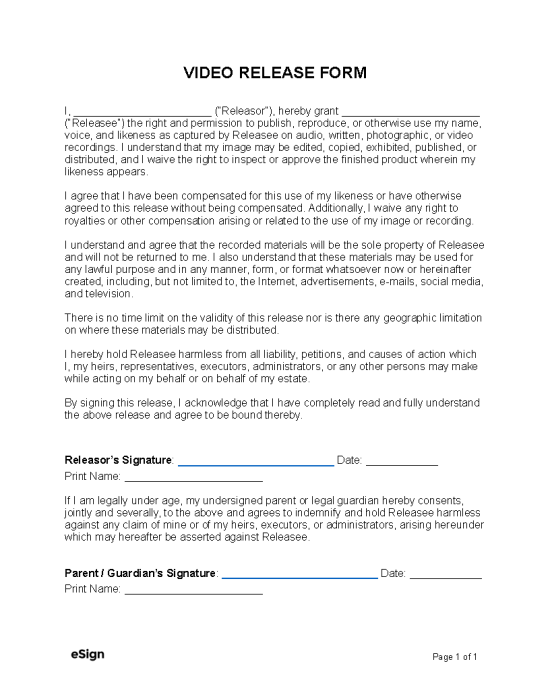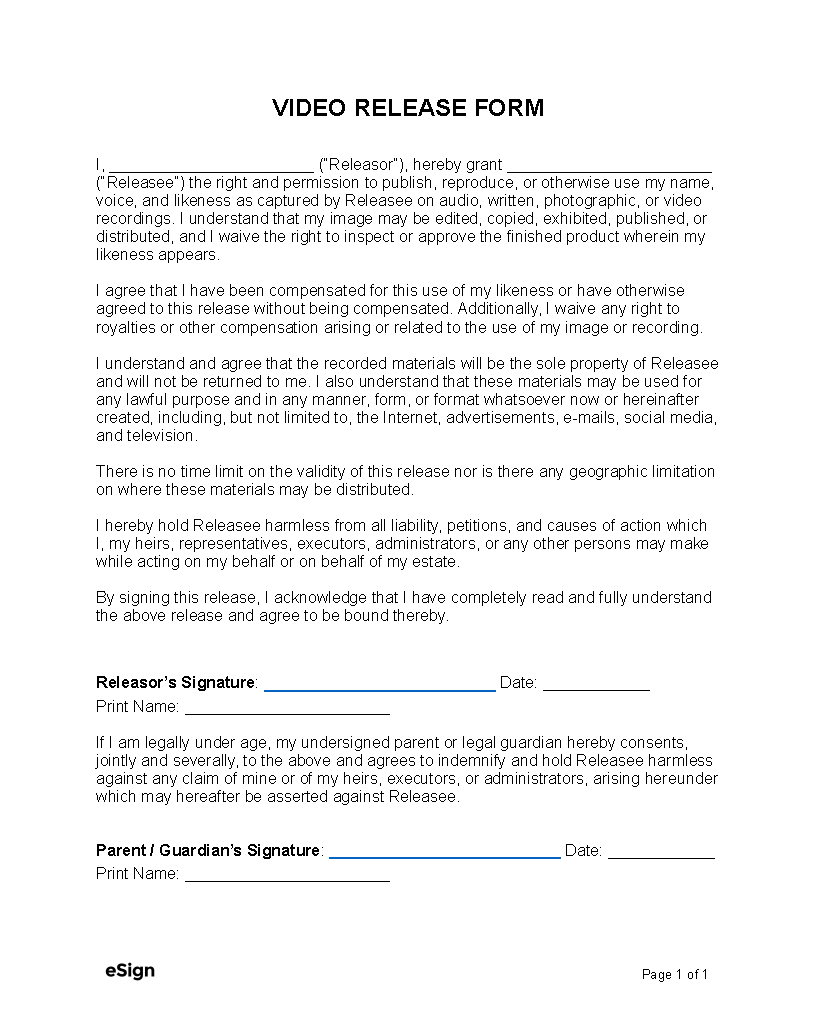Parental Consent
Some states have laws to protect minors from being filmed without parental consent. For example, Georgia has made it illegal to intentionally film a minor without first obtaining permission from the parent or legal guardian.[1]
Individuals should always check state and local laws to determine whether parental consent is required, especially if the recording is intended for commercial use.
What’s Included in a Video Release
A video release form, or video consent form, includes several clauses that help clarify the intended purpose of the recording and protect the video producer from legal issues. The release form features the following:
- Parties’ Names – The names of the person being recorded (the releasor) and the video producer (the releasee).
- Scope of Use – How the producer can use, edit, publish, and distribute the recorded video footage.
- Compensation – A statement outlining whether the subject is entitled to payment or royalties.
- Usage Limitations – Any limitations on where or for how long the footage can be distributed.
- Waiver of Rights – The rights the subject waives by signing the release, including the ability to inspect the finished product or hold the producer responsible for copyright infringement or privacy violations.

